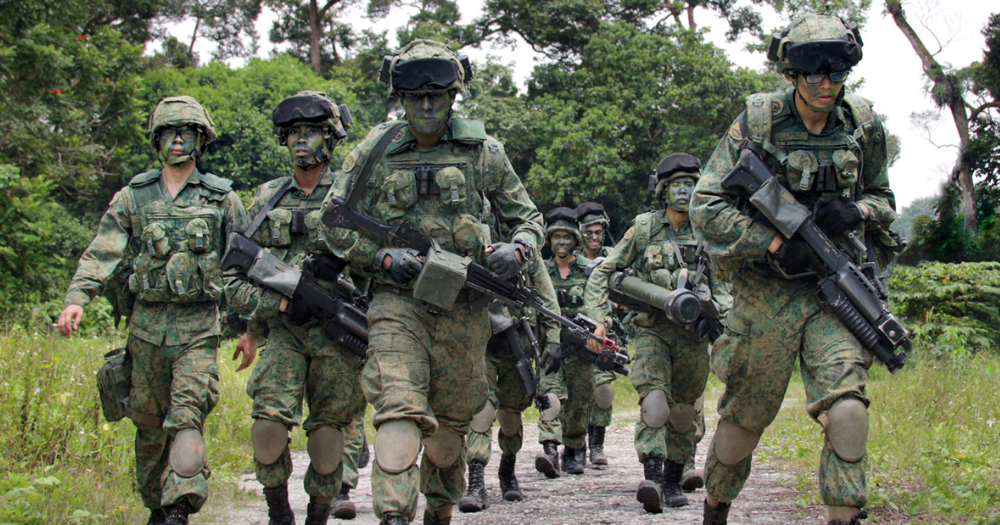Follow us on Telegram for the latest updates: https://t.me/mothershipsg
Personnel of the Singapore Armed Forces (SAF) who have consumed illegal drugs can choose to confess without being punished under the SAF Amnesty Scheme, according to a written reply by Minister for Defence Ng Eng Hen on Sep. 12.
He highlighted that the scheme is only applicable to SAF soldiers once, after which normal penalties will apply for drug offences.
Ng was responding to a Parliamentary Question (PQ) submitted by Member of Parliament (MP) Zhulkarnain Abdul Rahim on the steps taken to detect and prevent the abuse of controlled substances or drugs in military installations or during training locally and overseas.
Ng elaborated that the personnel who confessed will receive counselling and rehabilitation support to help them kick their habit and undergo regular testing.
Urine tests, routine spot checks conducted to monitor drug abuse
Urine tests are also conducted across the SAF to monitor drug abuse, Ng wrote.
These tests are conducted without notice in units, overseas bases and training locations, as well as on returning service personnel.
“The SAF Military Police also conducts routine spot checks to ensure that illegal products, including controlled drugs, are not brought into SAF premises,” he wrote.
In addition to that, Ng highlighted that the Central Narcotics Bureau (CNB) also inform the SAF Military Police Command when SAF personnel were arrested for drug offences.
SAF policy “aligned” with national policy of zero tolerance against drug abuse
Ng reiterated that the SAF maintains a policy “that is aligned to our national policy of zero tolerance against drug abuse”.
“The key planks of implementation are prevention and strict enforcement against drug abusers through testing, appropriate punishment and rehabilitation,” he added, and said that these two planks are necessary to ensure a drug-free culture within the SAF.
“Enforcement against SAF soldiers who are drug abusers is strict for deterrence,” he wrote, and stressed that any servicemen or women who test positive during urine screening will be charged.
They are typically sentenced by the military courts to a minimum of eight to nine months of detention in the SAF Detention Barracks.
As for known or suspected drug abusers who have confessed or had recent drug convictions, Ng shared that they will be put on the Urine Test Regime (UTR) and drug counselling sessions, during which they will be screened up to three times a week for a period of up to six months.
If they test positive during the period, they will be investigated for drug offences and potentially charged in court martial.
According to Ng, this serves as both a deterrence and a form of rehabilitation to help them stay away from drugs.
Top image via MINDEF/Facebook
If you like what you read, follow us on Facebook, Instagram, Twitter and Telegram to get the latest updates.
